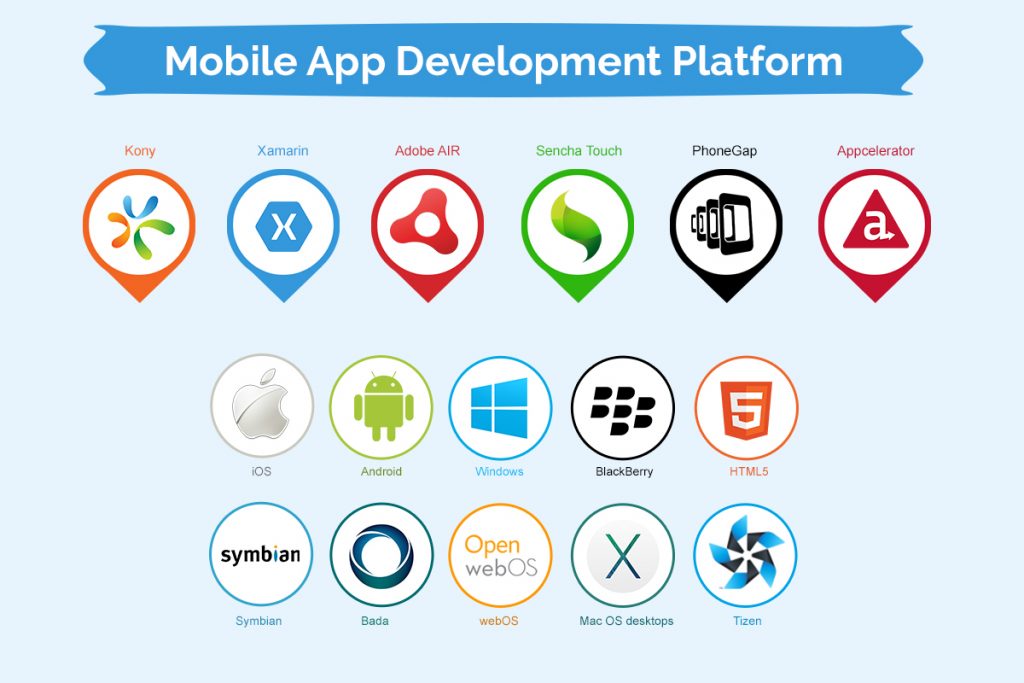In this age of mobile-everything, more people are relying on apps for their daily activities. From basic apps which play music to more advanced ones which convert your devices into highly accurate speed radars. There are apps to control your smart home systems. Even services like Frontier FiOS Internet have apps, which you can use to pay your bills and manage your accounts.
Currently, there are 2.6 million apps available on the Google Play Store and over 2 million apps available on Apple’s App Store. Further platform analysis shows that there were 205.4 Billion apps downloaded worldwide in 2018. By 2022, worldwide app downloads are expected to rise to a monumental 258.2 Billion. These statistics clearly show the potential of the app world. There aren’t many other platforms which give you access to such a wide consumer base.
With such huge market potential, it’s no wonder that most businesses are looking for ways to cash-in. Here’s the catch. Data analysis showed that in 2016, most apps were not used more than once in the first six months of being downloaded. If app developers fail to provide an engaging app, it’s most likely not going to be popular. So the million-dollar question is how do you make a successful app?
15 Steps to Develop a Successful Mobile App
Currently, the most popular category on the App Store is Gaming. There are, as of 2018, 24.86 percent apps listed in the gaming category. The closest category to Gaming is Business, with 9.77 percent apps listed.
Obviously, not all of the apps available on the stores are a success. Fortunately, there are things you can do to ensure your app has a better chance of success.
- Identify a Problem and Solve It
- Keep Things Simple
- Offer Value to Users
- Keep It Focused
- Don’t Limit Platforms
- Make it Available Offline
- Performance is Key
- Test, Test, and Test Some More
- Don’t Charge For It
- Market It Well
- Make It Personal
- Keep Users Engaged
- Provide a Direct Link for Feedback
- In-App Analytics is Your Best Friend
- Update Your App Regularly
Using these 15 steps to success, you can give your app the best chance to be in the Top 5! Now let’s discuss each in detail…
#1. Identify a Problem and Solve It
At the core of every successful app is its ability to solve a problem for the user. Gaming apps give users a way to unwind or kill time while they wait. Similarly, business apps like document scanners provide users with an easy way to scan and share documents on the go. Every good app identifies a problem and aims to solve it. Make sure you identify a valid issue and offer an efficient solution.
#2. Keep Things Simple
The key factor for the success of mobile apps is simplicity. The simplicity of user experience. If your app demands the user goes through a series of confusing tasks, it’s probably not going to be successful. Keeping things simple for the user, increases your app efficiency and that relates to success.
#3. Offer Value to Users
Your app needs to, above all else, make the user feel like they have gained from the app. It could be in the form of unique user experience, entertainment value or convenience factor. The best way for an app to create user loyalty is by offering true value.
#4. Keep It Focused
Some of the best apps focus on one thing, which they tend to do well. Keeping your app focused makes it more efficient and allows you to dominate the category. This does not mean that you can’t update and add more features later on.
#5. Don’t Limit Platforms
Some of us are passionate about iPhones while others stick to Android. Don’t let your personal opinion get in the way of your success. For now, there are two major app platforms but don’t forget to experiment with new ones. Technology is always growing and inventing, it’s important to grow with it.

#6. Make It Available Offline
It is common for apps to rely on the internet for most functionality. But it is important for apps to offer some functionality offline as well. Giving users more functionality offline usually improves your app ranking.
#7. Performance is Key
One of the most important factors for good user experience is performance. Optimizing your app to perform better using fewer device resources is the best thing you can do. Dimensional Research, conducted a study in 2015 on app user expectations. The study found the following results:
- 61 percent of users expect the app to start within 4 seconds
- 49 percent expected the app to respond within 2 seconds
- 55 percent hold the app responsible for performance issues
- 80 percent users said they would only use a problematic app less than 3 times before discarding
The study, conducted 4 years ago, shows exactly how important performance is. Consumer expectations have also grown since then. With the growth in technology, expectations of app users are growing as well.
#8. Test, Test, and Test Some More
After you have a working app, its time to test. Use excessive Beta testing to find all the bugs. Getting rid of the problems now will improve user response to your app. Using focus groups is also a good idea at this point. Their feedback allows you to make changes and improvements where possible.

#9. Don’t Charge for It
App users have a habit of not wanting to pay for apps. Offering a ‘Lite’ version for your app or offering it free with in-app purchasing for more features is a good idea. Asking users to pay for an app they haven’t tried, makes them less likely to purchase.
#10. Market It Well
You could make the best app in the category and still fail if you can’t market it. It is counterproductive to plan a marketing strategy after the app is available for sale. Most successful app developers launch marketing campaigns for apps while they are still in development mode.
#11. Make It Personal
According to an AgilOne study, more than 70 percent of users expect brands to offer some form of personalized experience.
App developers are coming up with innovative ways to make apps more personalized. Offering special birthday discounts or personalized push notifications are a good way to offer a more personalized user experience.
#12. Keep Users Engaged
What differentiates a successful app from the rest is good user engagement. It is important for you, as a developer, to work on engaging your users. Develop your user engagement strategy well.
#13. Provide a Direct Link for Feedback
Users can need to contact you for any number of reasons. To give you feedback, to report problems. It is important for users to feel heard. Give your app a user feedback option and quick initial response times.

#14. In-App Analytics Are Your Best Friend
Using in-app analytics, you are able to detect behavioral patterns. You can use this data to enhance your app experience to make it more appealing for users.
#15. Update Your App Regularly
Regularly updating your apps to offer more user-requested features shows you care. You are effectively telling your users that their opinions matter and fulfilling their needs is important for you. This practice goes a long way in maintaining popularity amongst users.
Conclusion
An important thing to remember is not to create an app focused on current technology. By doing that, your app and the technology could both be out-of-date, by the time of release. Integrating new technology is important. AI technology is on the rise. Currently, customer support, like Frontier Customer Support (1-844-813-5884), use AI to improve user experience. But, there is tremendous potential for other uses. Try to be innovative and experiment with new technology. Creating a successful app is not something that is unachievable. By breaking down your checklist and going over it systematically, you can create a successful app.
Article written by clareabner.


